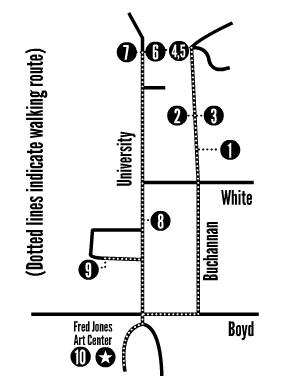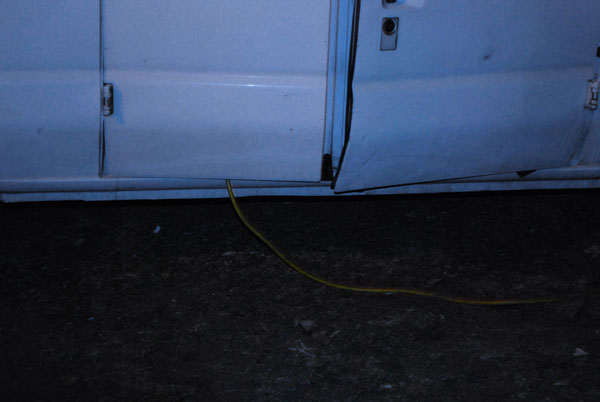




My piece was a short performance; I hid in the van with a microphone in my hand and an amplifier and read a poem from Rainer Maria Rilke in Persian, my mother tongue. The length of the performance was determined by the length of the poem; the audience were standing around the van, they couldn’t see me and they were listening to the language that none of them knew. I didn’t explain what I was reading in English, and I finished the performance by the only word that could be understandable for the audience: thank you. The audience were invited to hear another language and to know that they don’t know the language that I was talking with. I was reading a poem that was originally written in German, in Persian for people who were speaking in English. This translation of translation turned to an un-understandable voice in the dark streets of Norman, Oklahoma.
This piece had a small personal revenge-like aspect too; Iran is the country that has always been under the possibility of war with US, nobody knows this language here, and everybody knows how to speak English in Iran. Afghanistan and Iraq had been under the attack of US and I’ve known many people on campus who are trying to learn Arabic because they want to join the army. They think Iranian’s language is Arabic. We have several words in Persian that cannot be pronounced here. And many people are scared to see the words that are written from right to left with the connected shapes; the threatening, mysterious words. The piece had lines about the solitude of a person, where ever she/he is in the world and the solitude of the house, and it was done in the yard of my house, which is one of the few places that I can relate to here.
I was not looking for the Persian audience–though it could be a magical experience for any Iranian who would be accidentally walking on that street at the performance time to hear a poem that is being broadcast–the impossibility of communication, and at the same time the possibility of communicating the emotions away from the wall of languages (with the feeling, speed and tone of the voice), was another thing that I considered about making this piece.